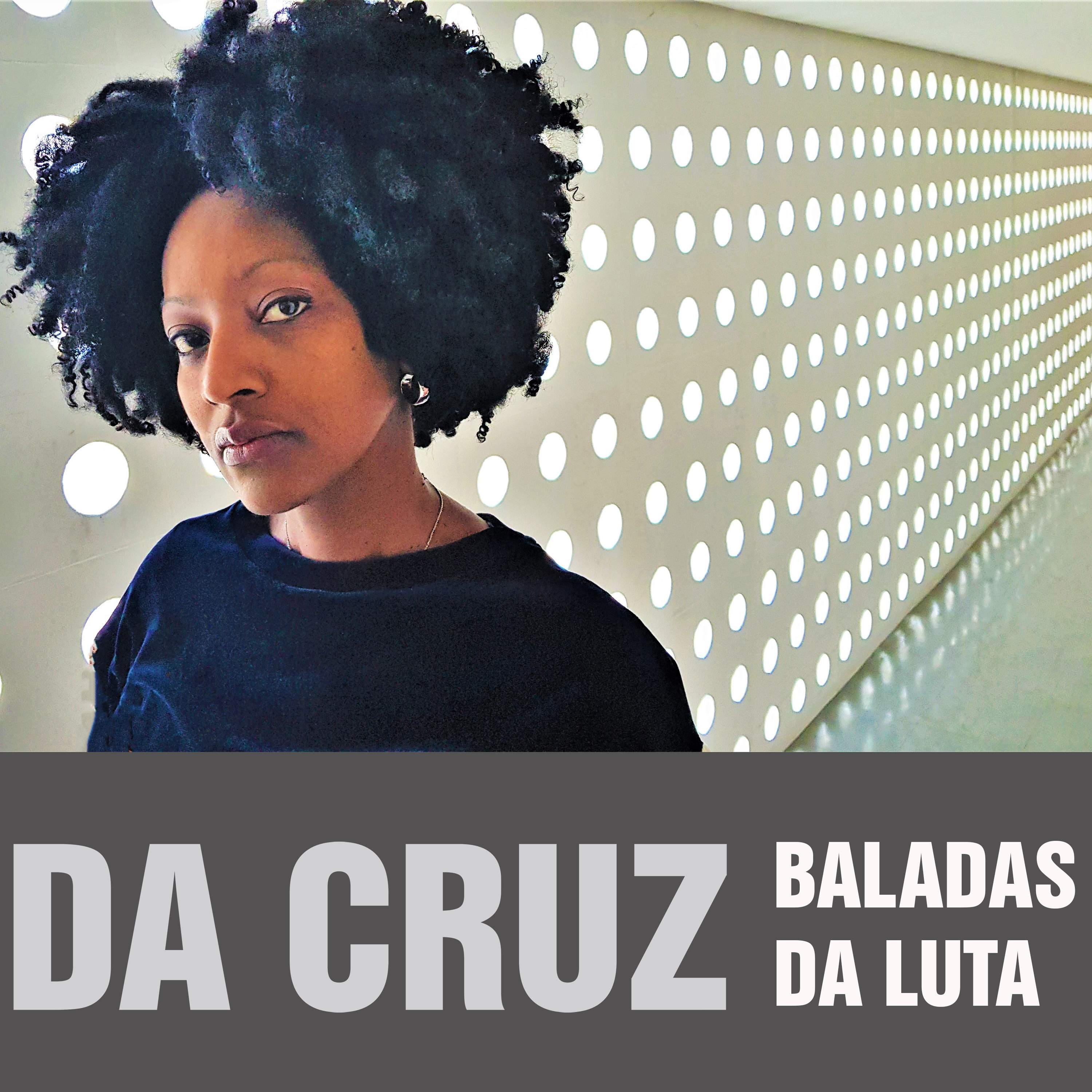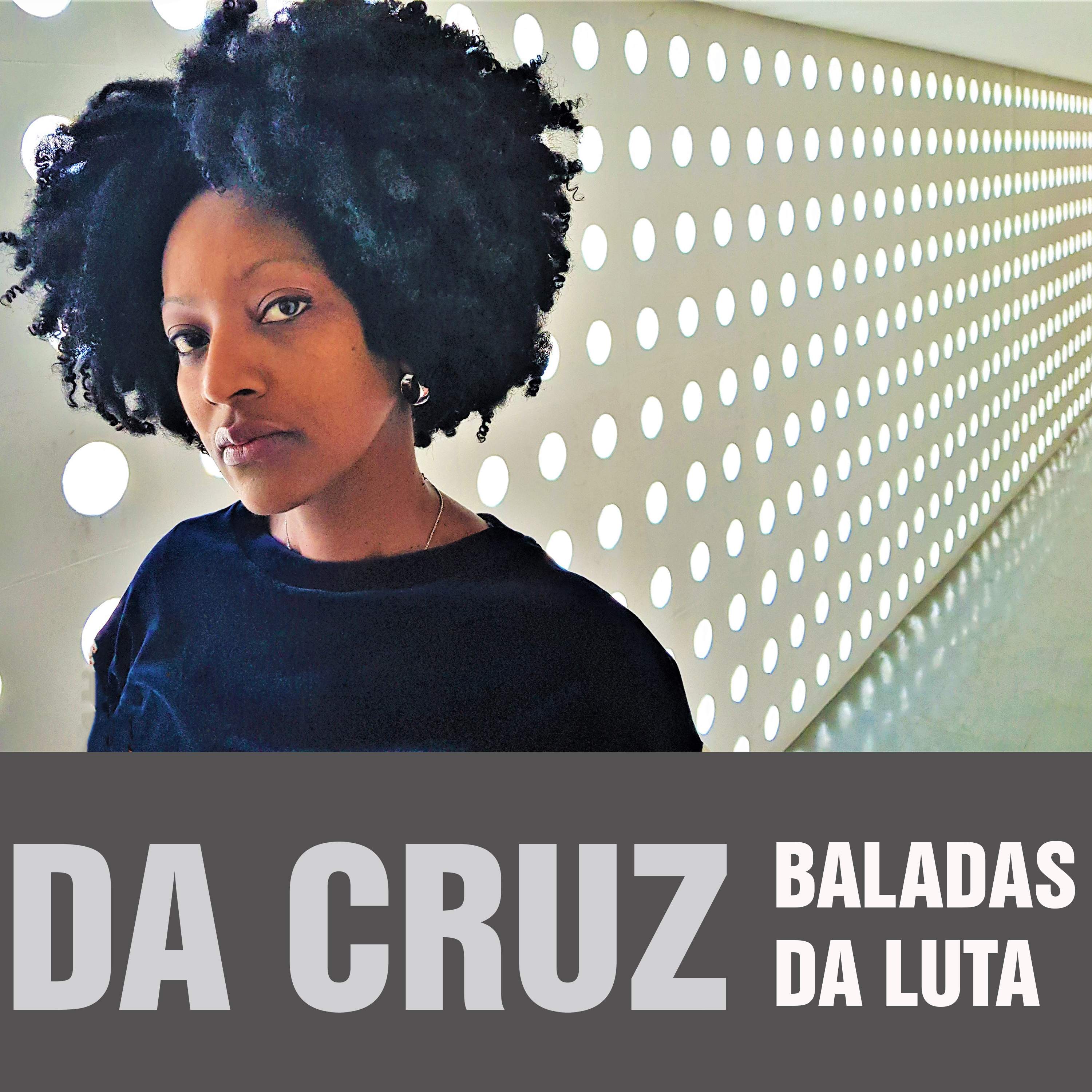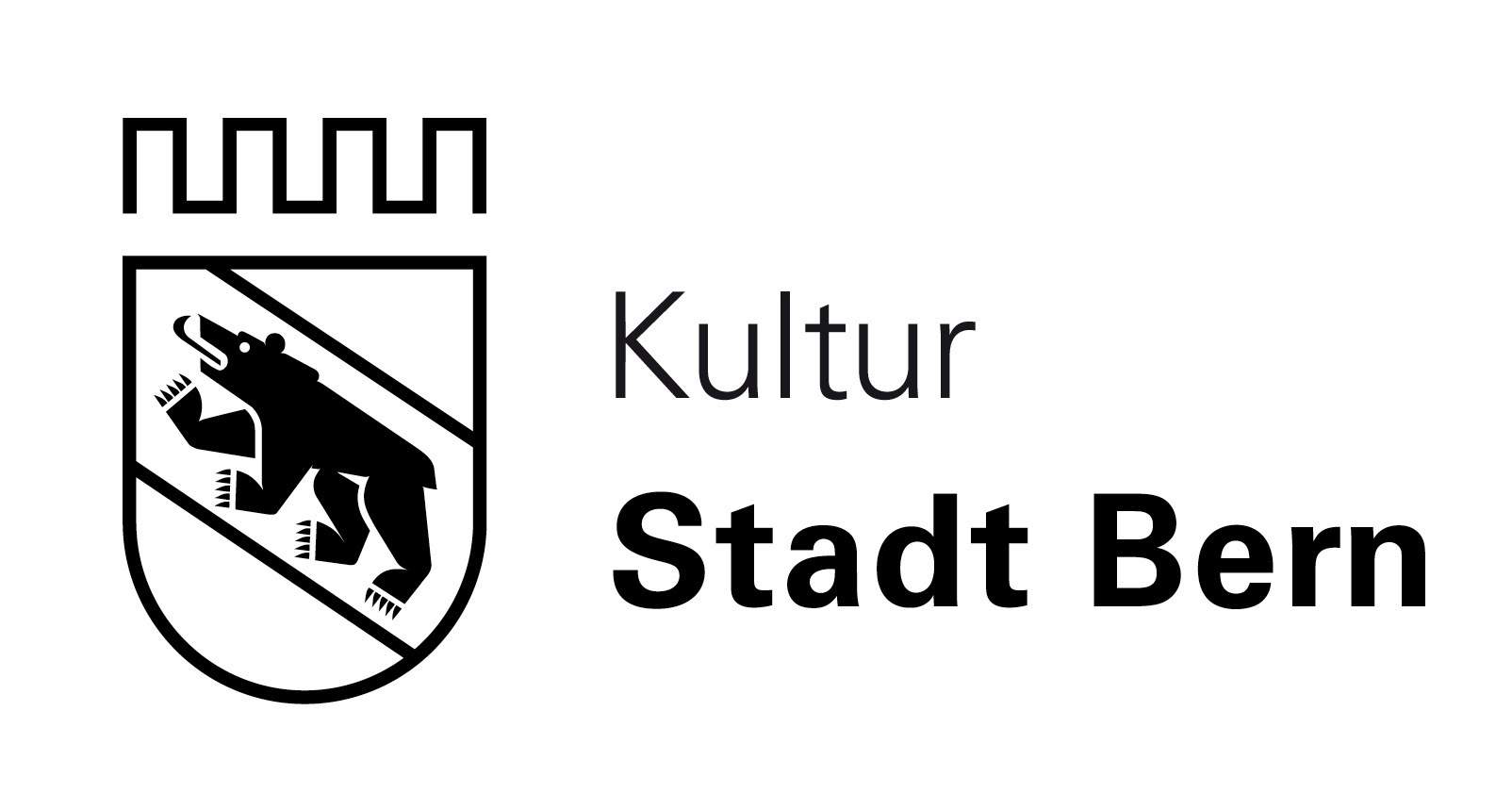Baladas da Luta
There are guests on this album like the British-Nigerian pidgin rap guru Magugu or Arnaldo Antunes, who was chosen by "Rolling Stone" as one of the hundred best artists in Brazilian music. There is heavy-blooded Afrobeat, angry Hip-Hop or a Brazilian disco flair. There are touches of Krautrock, Baile Funk or Soul - all held together by the warm voice of Afro-Brazilian singer Mariana Da Cruz.
She describes the dilemma of musical classification as follows: "Whenever it comes to categorising my work - for example, in the algorithm-feeding of streaming services - I realise that I'm cruising in a pretty lonely orbit.
Is my music sad, upbeat or thoughtful? It is everything at the same time. Is it electronic or acoustic? It is both. What band sounds similar? I don't know."
"Da Cruz are increasingly establishing themselves as a musical genre all their own," the German music magazine Soultrain recently noted. And the TaZ wrote about Da Cruz: "This music often sounds militant and angry, sometimes melancholic - so similar to the mood in Brazil, which is wavering between resignation and revolt right now."
HISTORY
Mariana Da Cruz grew up as the seventh child of a cotton picker and a cook in Paranapanema, a small provincial town in the state of São Paulo. Recordings, concerts, music lessons; all that was unaffordable. Music, however, was an escape point even then - Mariana absorbed it through a small transistor radio in her nursery.
She was already singing as a teenager in a club in the nearest big city, Campinas, where she studied to become a teacher: Bossa Nova, MPB, Elis Regina, Jorge Ben - all the classics - it was her basic research. But curiosity drove her first to Lisbon in the early noughties, later to Bern, where she lives today.
"It was also this curiosity that spurred me on to search for a new, self-sufficient expression," says Mariana Da Cruz. "A music that is timeless and modern at the same time, that is aggressive and yet targets the heart, that has style but does not follow fashions. A music, too, that minutely observes and names social fault lines."
POLITICAL STANCE
It stands to reason that Mariana Da Cruz would reflect on the world's dislocations through her first home, Brazil. A country that anticipated all the developments we see everywhere today. “There is a fundamental alienation between politics and the people, there is burgeoning racism, social divisions, there is an ever greater injustice in the distribution of wealth, and there is this inexplicable yearning for authoritarianism”, she says. And she sings against all this. For more than 15 years.
"It seems so tired and ridiculous to raise your voice today against right-wing populism or against the oppression of minorities," says Mariana Da Cruz. "It seems as futile as mentioning that you don't appreciate war and murder, and that you prefer empathy to divisiveness. But we live in a time when that is apparently still desperately needed."
CULTURAL BACKGROUND
A key driver of her music is her engagement with her African roots. Whereby the situation here - as for all Afro-Brazilians - is somewhat complicated: "We know that our ancestors come from Africa, but we don't know from where. You can't do any research on that," explains Mariana Da Cruz. "We've travelled a lot in the last few years for this search for traces, been to Burkina Faso, Bahia, Rio - and all these experiences and impressions flow into my music."
WORKING METHOD
Da Cruz is what you could call a radical independent project. All their albums so far have been recorded, mixed and produced in their own studio. They have been released on their own label Boom Jah Records, except for two albums released with the American label Six Degrees Records (Bebel Gilberto, CéU, The Do).
Over the past 15 years, Da Cruz has earned a stellar reputation on the global music scene. Each of his five albums to date has made it into the top 10 of the American college radio charts. Newspapers like "The Independent", magazines like "Rolling Stone" and radio stations like BBC 6 Music, KEXP, Radio Nova, Cosmo, Deutschlandfunk Kultur, Couleur 3, FIP or Radio France International follow their activities closely and play Da Cruz music regularly.
After various concerts at festivals and clubs around the globe, Da Cruz was pre-nominated for the 30 Prêmio da Música Brasileira (Brazil's most important music award) in 2019.
The core of the band includes Ane H., former singer and programmer of the industrial band Swamp Terrorists, Bernese guitarist Oliver Husmann and drummer Pit Lee.
Song to Song
Together with the British-Nigerian pidgin rap guru Magugu, a musical and political statement has been created. "Serpentes" ("Snakes") describes Brazil's situation after four years under far-right president Jair Bolsonaro. "Society is politically divided, the tone is rough, the cultural scene is traumatised," says Mariana Da Cruz. "It is in this ambience that this song was born." It grooves in an Afrobeat shaken by deep, electronic bass. Over it, Mariana Da Cruz sings a lament about the state of the world and calls for a vaccine against hate.
"O Corpo" is Da Cruz's contribution to the body positivity debate. It is an ode to one's own body, that source of inspiration, that interface between the self and the world. The song combines 70s strings, with 80s drum machines and Brazilian disco appeal.
Until now, when people talked about a "new world", it sounded like a promise of salvation. Something we could create for ourselves out of the sum of our interests. It sounded like better air, nicer people, advanced technologies, evolution and fewer problems. But lately the term "new world" only means division, intolerance, insane dictators, presidents who stir up hatred and contempt. The ballad-like song is about this paradoxical mood we live in: Progress has turned into the opposite of what we understand as a "better world". At the end of the song, for which Da Cruz was able to enlist Arnaldo Antunes - one of the most influential musicians in Brazilian history - Mariana Da Cruz sings: "I believed in you, new world / My heart was racing / I was waiting for you, new world / I had already ordered the fanfares."
The song is a little reminiscent of eighties hip-hop. It's about love in an increasingly gloomy world: "Overnight the memories came / Everybody laughed, nobody doubted / Overnight the climate changed / Nobody ever thought it would take a turn for the worse / Overnight you appeared to me / And the world shined / And the world shined."
One has heard many shout "freedom" in recent years. And not all of them seem to have understood the term correctly. "The freedom I praise in this song is not the freedom that is based on selfishness or that seeks the separative, the divisive. It is a freedom that we obtain as a society when we stand in solidarity, when we stand together and integrate the weakest," says Mariana Da Cruz about this song, which is animated by a solemn funkyness, but also by a certain melancholy.
Brazil has experienced two plagues at once in recent years: corona and a president who has created a climate of resentment and hatred. "I wrote this song knowing that my home country has lost its smile and light-heartedness during this time," says Mariana Da Cruz. "We are always blinded by charlatans who promise us quick happiness and prosperity, and we succumb to the temptation to follow them, even though we see through their rotten tricks. But we can only move forward if we join hands and stand together for our values and for humanity." That's what this song is about, musically mixing krautrock with spaghetti western guitars and psychedelics.
In mourning for her deceased brother, Mariana Da Cruz paints the moral picture of a country that treats the weakest like dirt. A country where poverty and self-centredness are rampant as never before. A country that favours the privileged instead of offering protection or at least a chance to those who are less fortunate in life. "It is the song on this album that goes to my heart the most," says Mariana Da Cruz. Quote from the chorus: "I remember my brother / Crawling around on the floor with bruises / Asking for forgiveness / Being abandoned / Without any protection". Stylistically, the song is difficult to classify. Let's call it Afro-Brazilian dub music.
"I wrote this song after reading the book "Child of the Dark: The Diary of Carolina Maria de Jesus." A woman from the favelas of Rio whose diaries were discovered and published. It gives a harrowing idea of what it means to live in poverty and hunger," says Mariana Da Cruz. Under Jair Bolsonaro's government, Brazil has returned to the international map of hunger. 27 million people live in poverty, most of whom are not part of the old, white minority that rules this country. "Gimme Some Power" is a cry of desperation, says Mariana Da Cruz.
It's a sound heard often in Brazil over the last four years: people stepping on their balconies and banging on their pans. Noise against a government that has undone all previous efforts to make Brazil more just, more united and more tolerant. Da Cruz have picked up on this sound here. The song is about the pain and anger of someone whose values and Afro-Brazilian history are being ridiculed by a cynical government. "Oh my God! This cultural abyss must end," sings Mariana Da Cruz at the end of this raucous and powerfully grooving song that shuttles stylistically between Africa, Europe and Brazil - urbane, fervent and driven towards the end by an almost mocking furore.
A love song in a soulful style. It explores the question of what chance love has when a storm of madness rages around you.
"I wrote this song after a visit to Rio. There is a place there where African workers used to be brought to be sold as slaves. When we talk about that time, we always think that it happened in the dark past. Yet it was only 150 years ago." That's what this angry hip-hop song is about. Mariana sings: "The spirit of the old days is still in your heads / That's how you built your world / And destroyed ours at the same time".







